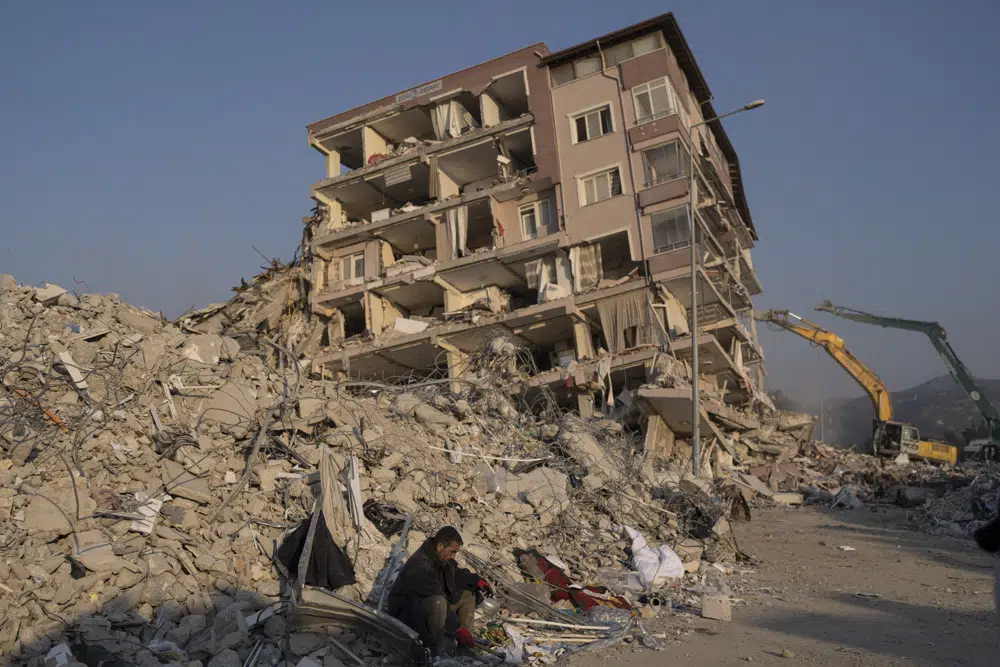

Rescue crews on Monday pulled a 40-year-old woman from the wreckage of a building a week after two powerful earthquakes struck, but reports of rescues are coming less often as the time since the quake reaches the limits of the human body’s ability to survive without water, especially in sub-freezing temperatures.
The magnitude 7.8 and 7.5 quakes struck nine hours apart in southeastern Turkey and northern Syria on Feb. 6. They killed at least 33,185, with the toll expected to rise considerably as search teams find more bodies, and reduced much of towns and cities inhabited by millions to fragments of concrete and twisted metal.
On Monday rescuers pulled a 40-year-old woman from the wreckage of a 5-story building in the town of Islahiye, in Gaziantep province. The woman, Sibel Kaya, was rescued after spending 170 hours beneath the rubble by a mixed crew that included members of Turkey’s coalmine rescue team.
Earlier, a 60-year-woman, Erengul Onder, was also pulled out from the rubble in the town of Besni, in Adiyaman province, by teams from the western city of Manisa.
“We received the news of a miracle from Besni which helped put the fire raging in our hearts a little,” wrote Manisa’s mayor Cengiz Ergun on Twitter.